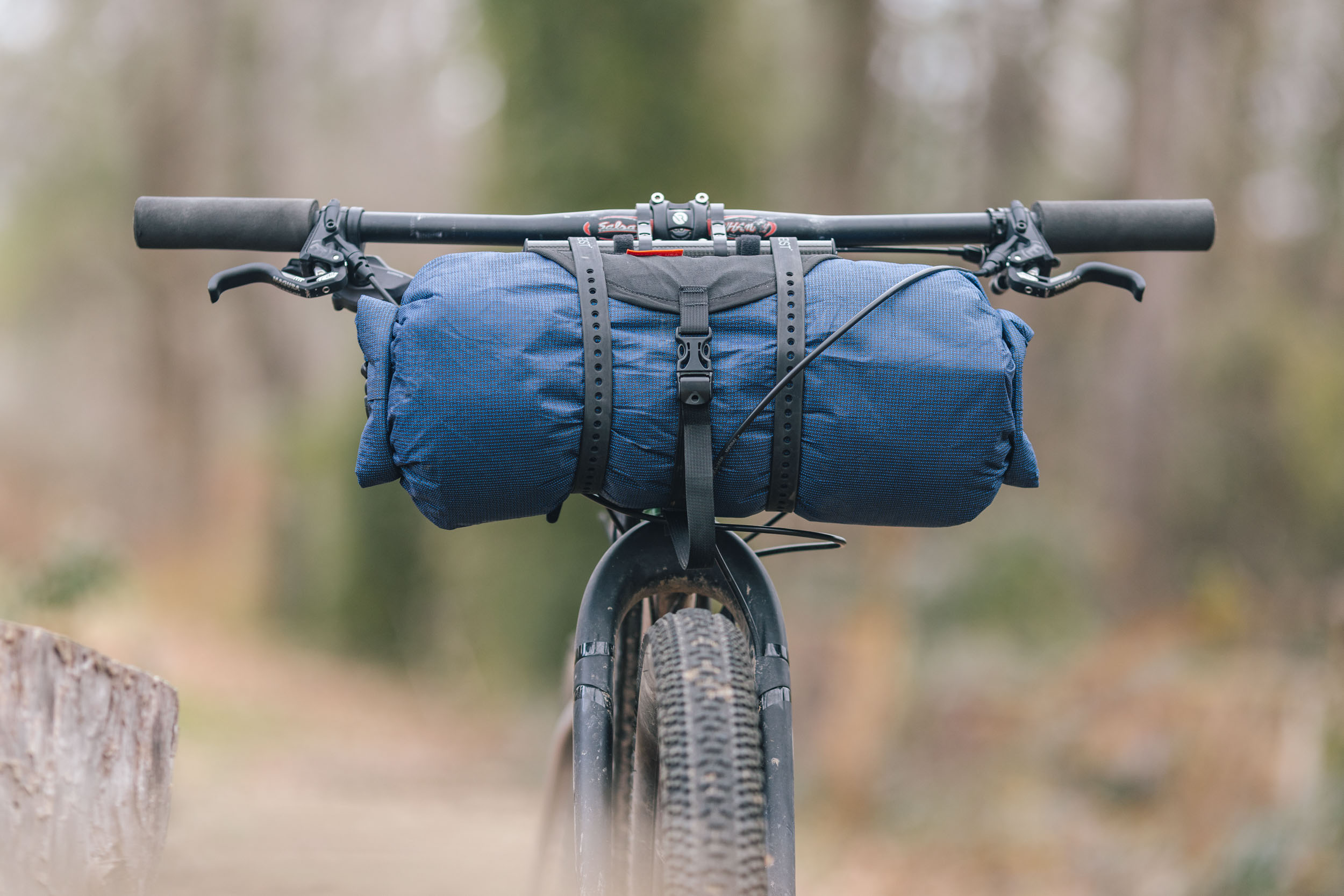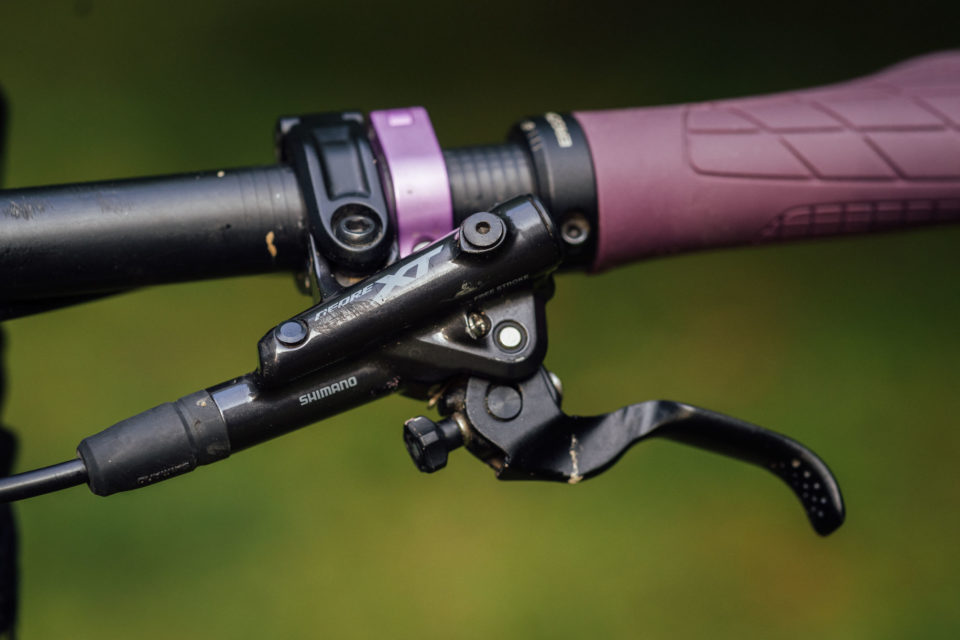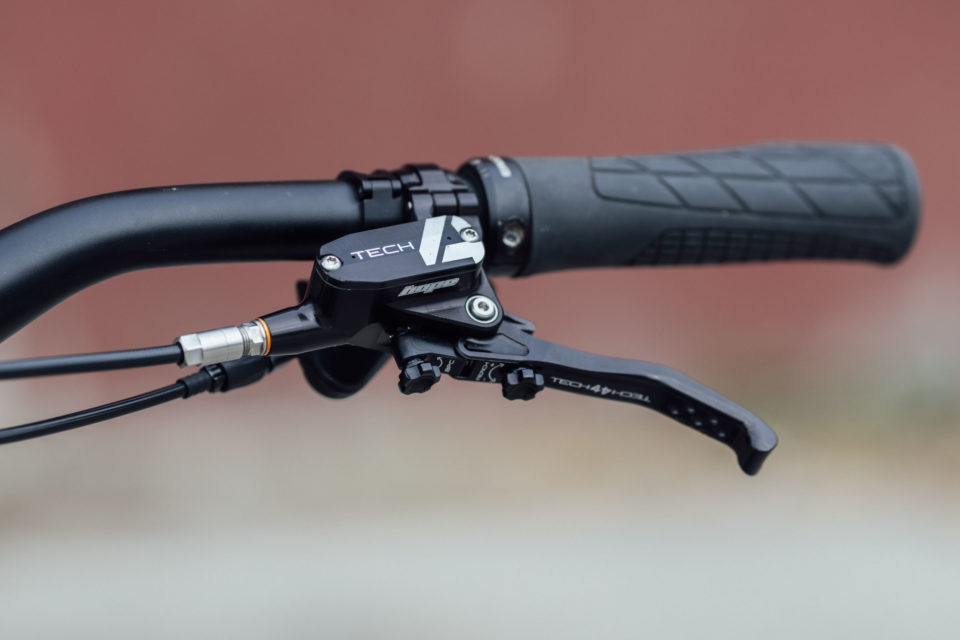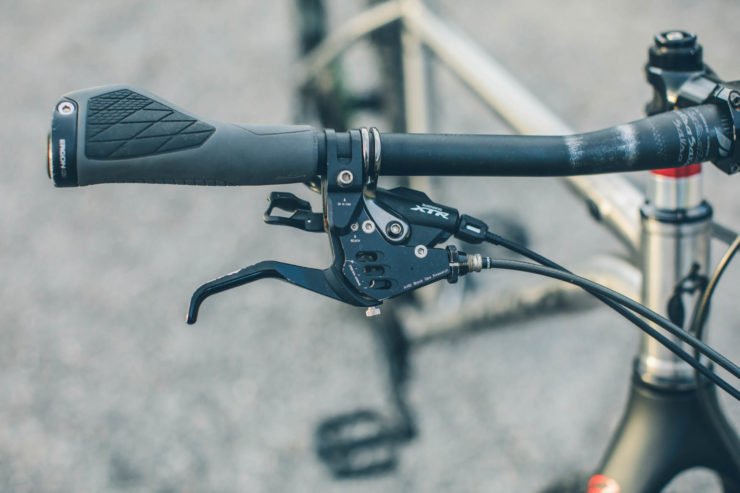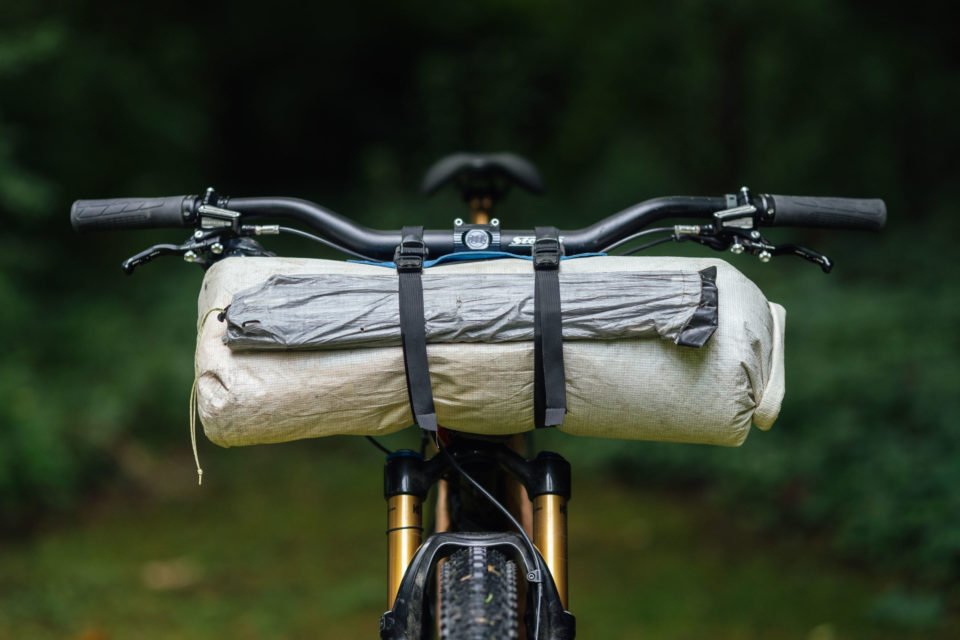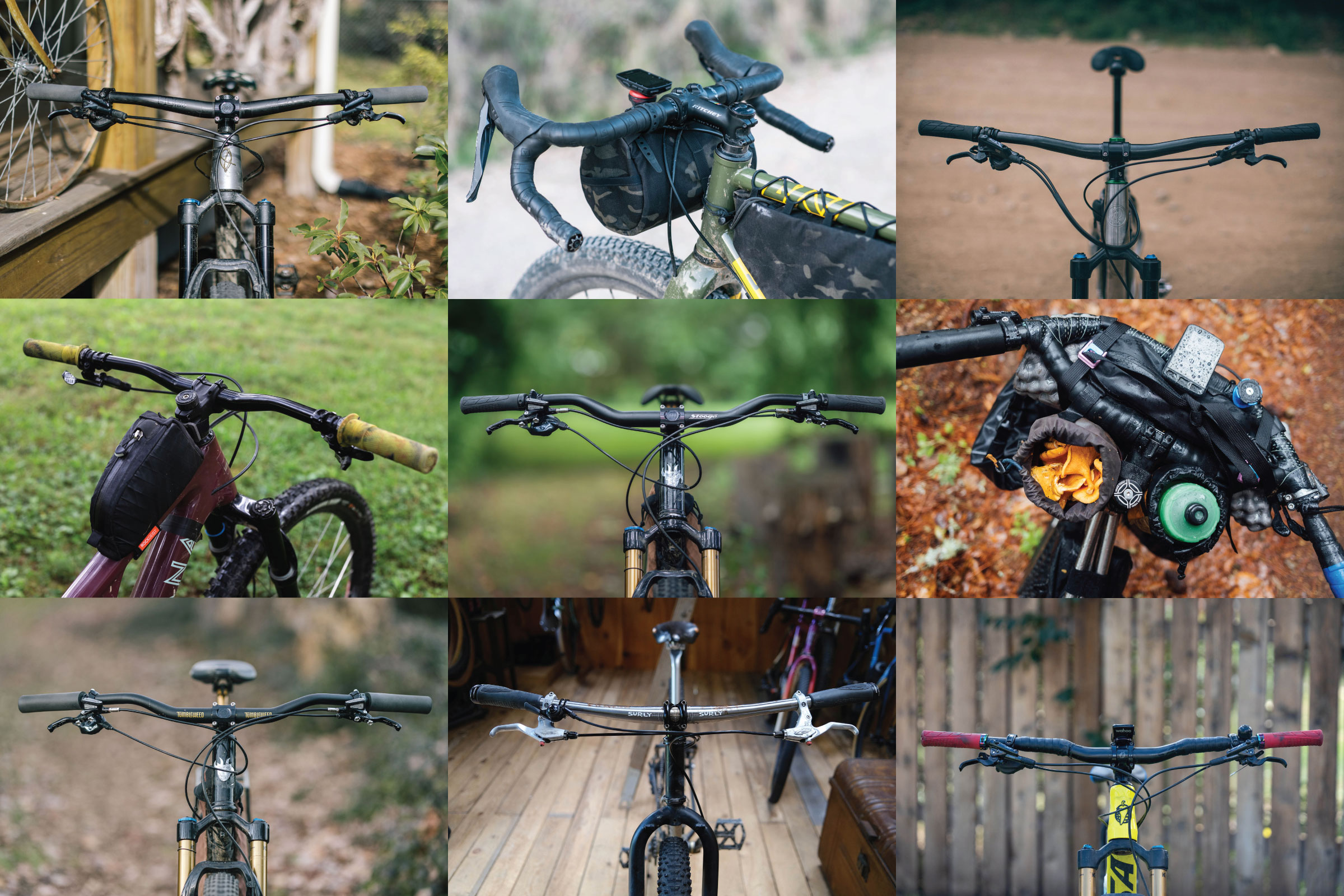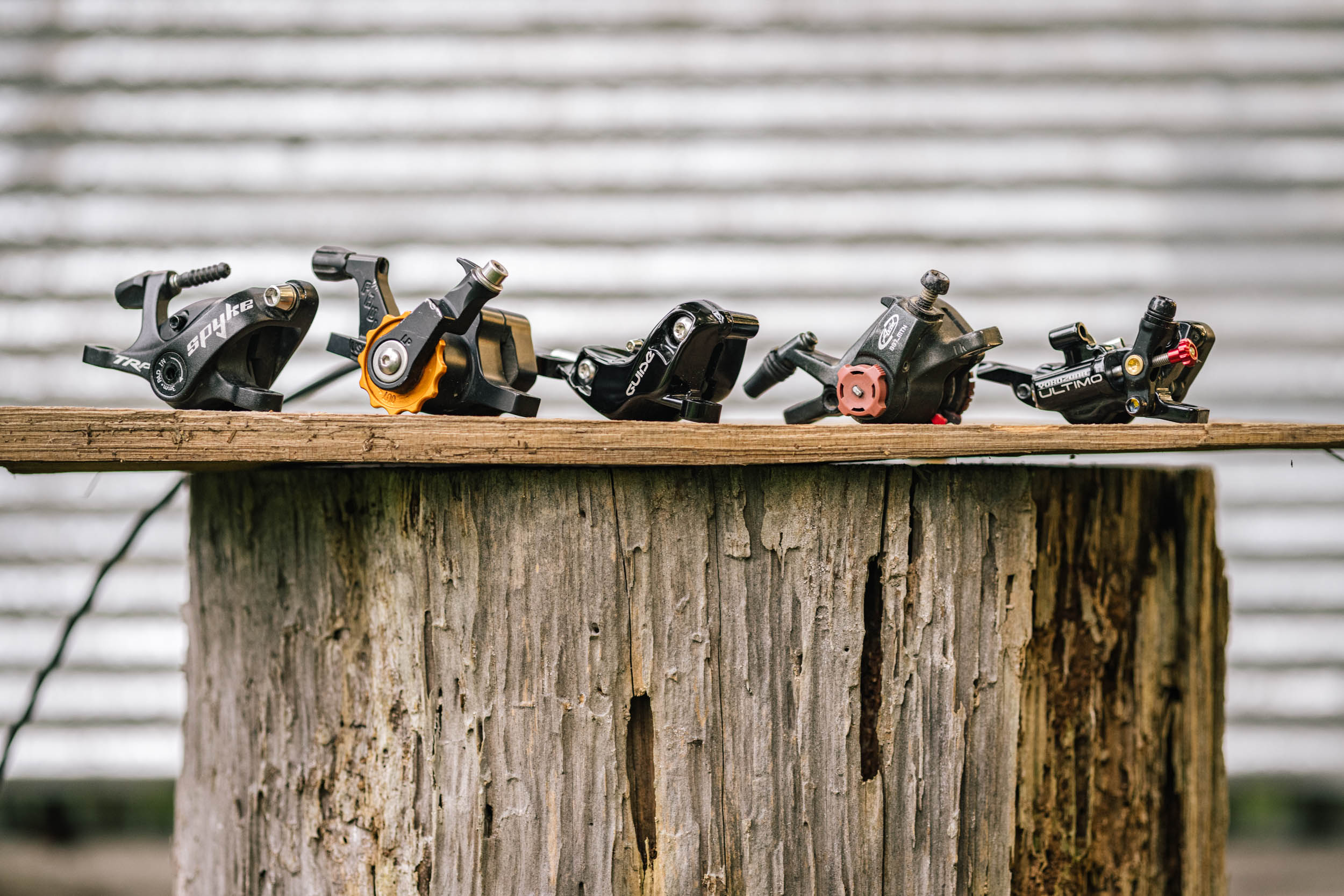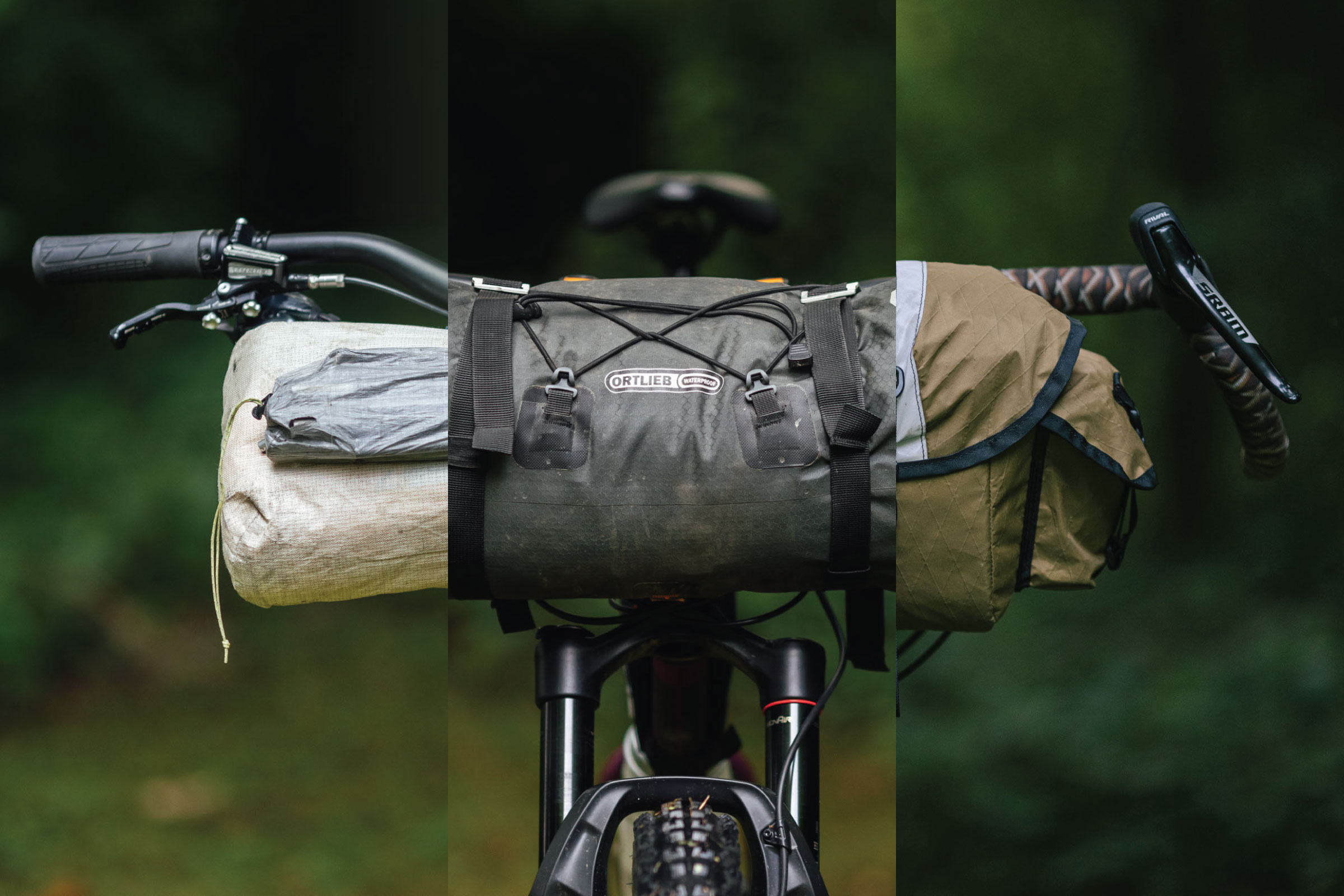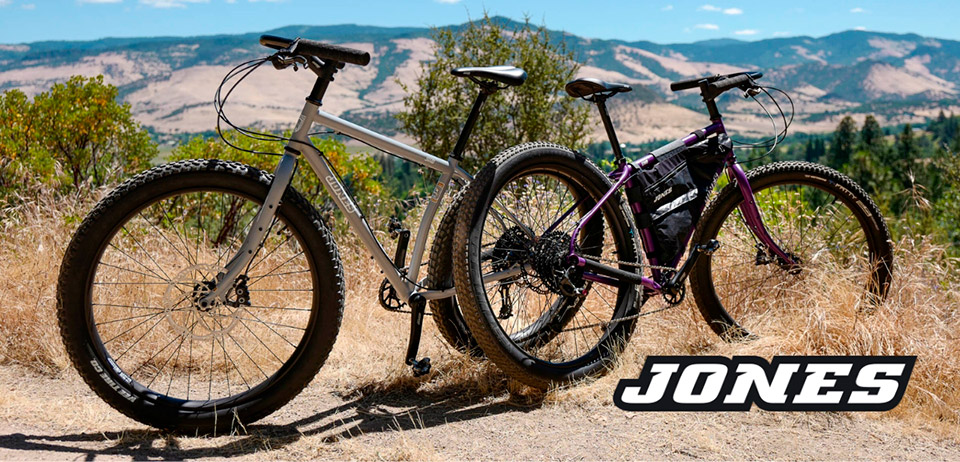Brake Lines & Bikepacking Bags: The Best Brakes and How to Route Them
What’s the best way to route brake lines with a handlebar bag for bikepacking? That’s a good question. In our latest video, Neil talks about the different ways of doing so and identifies several brake levers that work well with handlebar bags. Watch it here…
PUBLISHED Jan 9, 2023
Brake lines, cable housing, and bikepacking bags don’t always go well together, which can lead to many frustrations for bikepackers. In this video, Neil unpacks this issue to help ease those frustrations. He walks through some common issues to avoid, shares how to trim lines with bags in mind, highlights some relevant variations among components, and much more.
As Neil mentioned in the video, SRAM’s Code/Guide brakes are a bit of a pain when paired with a roll-style handlebar bag. I’ve found that Shimano XT and Hope Tech3 E4 brakes work much better, especially when routing behind the bag. They both have a much more svelte reservoir/line exit point.
However, with larger and more protruding levers, it’s also possible to leave cable housing or lines very long to route around the bag. I did this when using the bulbous (but excellent) Avid Black Ops levers with my Timberjack Ti. As Neil explained, it’s best to experiment with your levers and bags prior to deciding on which way to route the housing or lines.
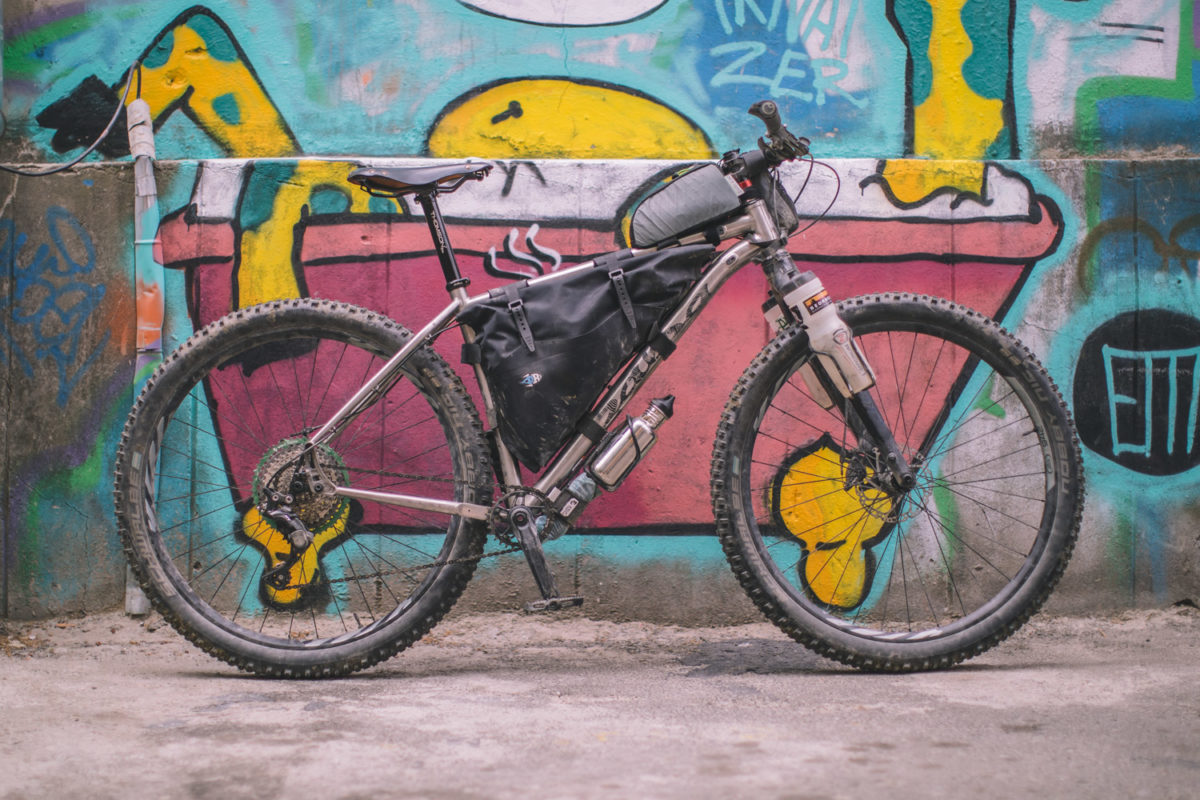
When it comes to MTB bars, I’ve also found that bars with a moderate backsweep (12-16°) and ~50mm rise help minimize cable interference, moving the levers up and away from the bag. The Stooge Moto bars shown below perfectly situate the cable housing and lines to sit neatly just under the stem when used with a bag like the Revelate Pronghorn.
That makes a huge difference compared to a traditional low-rise minimum-sweep flat-bar, as shown here:
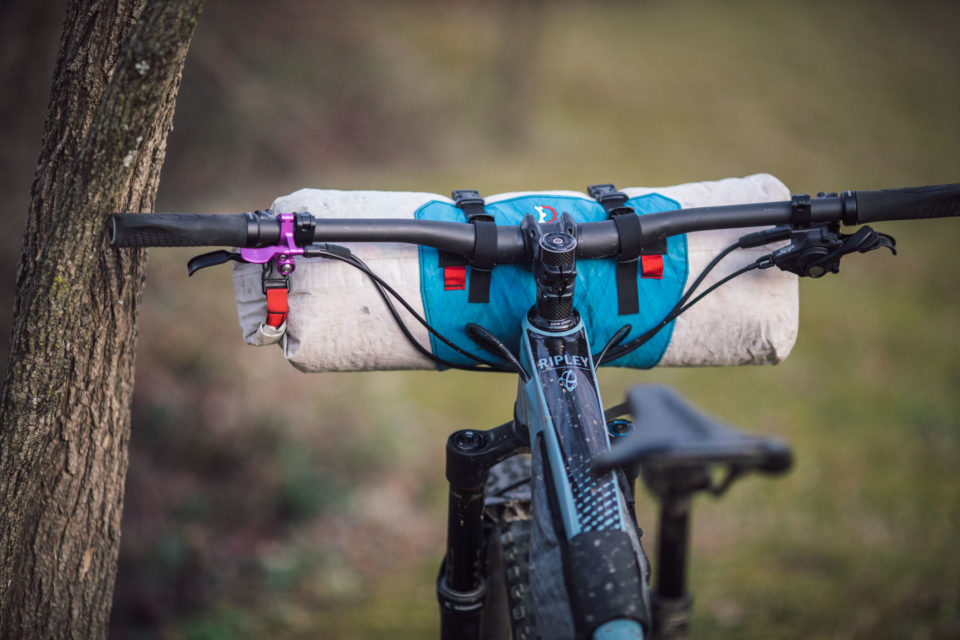
Do you have a preferred cable routing method, or any suggestions for routing brake lines with bikepacking bags? Leave a comment in the conversation below.
Related Content
Make sure to dig into these related articles for more info...
Please keep the conversation civil, constructive, and inclusive, or your comment will be removed.

We're independent
and member-supported.
Join the Bikepacking Collective to make our work possible:






